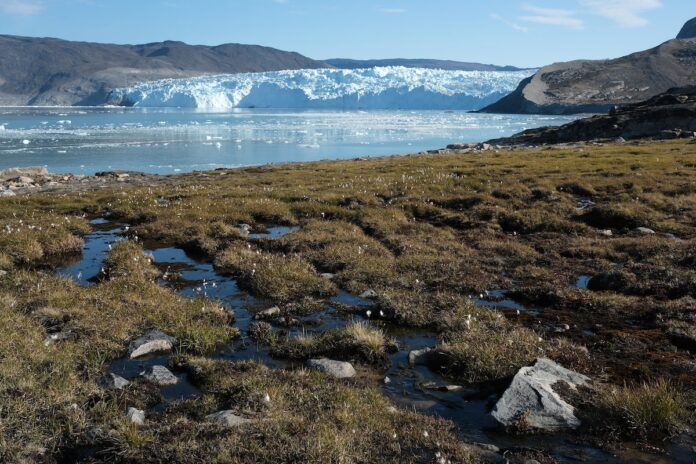“Uncovering the Hidden Impact of Melting Glaciers on Greenland’s Coastline”
The rapidly retreating Eqi Glacier in Western Greenland has been a cause for concern among scientists and environmentalists alike. A recent study conducted by an international team of researchers has revealed the extent of the glacier’s retreat over the past two decades, highlighting the impact of global heating on the region.
According to the findings published in Nature Climate Change, the researchers used satellite imagery from 2000 to 2020 to track the exposure of Greenland’s coastline as the glaciers receded. They found that a total of 1,006.6 miles of coastline have become exposed due to the melting of Greenland’s glacial ice, with the majority of the new coastline occurring in Greenland itself.
One of the most significant examples of glacier retreat was the melting of Zachariae Isstrom, which led to approximately 50 miles of coastline being exposed – twice the amount of any other Northern Hemisphere glacier. The melting glaciers also revealed 35 islands that had been previously obscured by ice, 29 of which are part of Greenland.
The researchers noted that the newly exposed coastlines are highly dynamic, exhibiting high sediment fluxes and rapidly evolving landforms. This poses a risk to local ecosystems and Arctic communities, as regions surrounding marine-terminating glaciers are more susceptible to tsunamis triggered by landslides.
Furthermore, the retreat of the glaciers could lead to potential geopolitical tensions, as 13 of the newly exposed islands have not yet been claimed by any nation. Countries may seek to access the natural resources that these islands could contain, leading to competition and disputes over ownership.
Overall, the findings of this study underscore the urgent need for action to address climate change and its impact on glaciers and coastal regions. The retreat of the Eqi Glacier in Western Greenland serves as a stark reminder of the consequences of global warming and the importance of protecting our planet for future generations.
